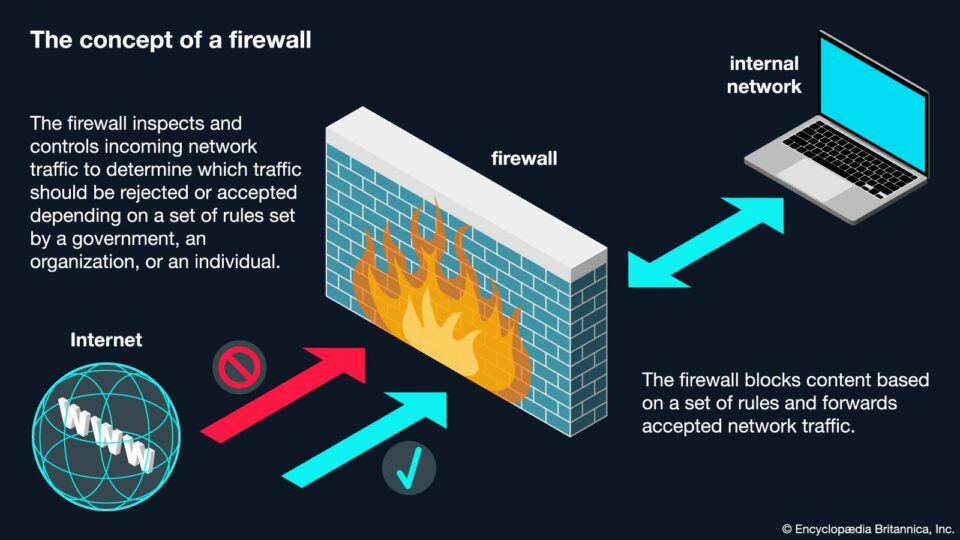Online censorship in China by some regional governments is even more aggressive than enforcement of the national-level ‘Great Firewall’ by the central government, according to a recent study and local sources.
The Great Firewall Report (GFW Report) highlights how the central Chinese province of Henan has adopted its own provincial firewall which is less sophisticated and robust than the central government’s but more volatile and aggressive, blocking significantly more websites than the national-level censorship system.
Local sources told Radio Free Asia that the heightened restrictions at the provincial government level may reflect uncertainty about instructions from higher authorities, leading to “excessive blocking” to avoid blame for failing to carry out their duties.
GFW Report is a censorship monitoring platform, primarily focused on China. During one experiment its researchers ran between Dec. 26, 2023 and March 31, 2025, they found that the Henan Firewall blocked 4.2 million domains, about six times that of the 741,542 at the national level.
Since 2023, netizens in Henan had reported a rise in the number of websites that were inaccessible in the region but accessible elsewhere in China, the study found.
“This localized censorship suggests a departure from China’s centralized censorship apparatus, enabling local authorities to exert a greater degree of control within their respective regions,” researchers Mingshi Wu at GFW, Ali Zohaib and Amir Houmansadr at University of Massachusetts Amherst, Zakir Durumeric at Stanford University, and Eric Wustrow at the University of Colorado Boulder wrote in the GFW Report published in May, “A Wall Behind A Wall: Emerging Regional Censorship in China.”
But the phenomenon extends beyond Henan, sources inside China told RFA.
Local governments in neighboring Hebei, another central Chinese province, as well as those in Tibet and Xinjiang have been operating similar censorship systems as the one reported in Henan for at least four years, Zhao Yuan, a network engineer based in Hebei, said.
“In the past, we could access overseas websites that were not blocked by the national firewall,” Zhao said. “Now, even virtual private networks (VPNs) in Henan and Hubei don’t work.”
While the national-level firewall, known as the Great Firewall, targets more news and media sites, in line with China’s long-standing policy of censoring politically sensitive information, the provincial-level firewall systems, like the one in Henan, blocks domains focusing on topics like the economy, technology, and business, GFW Report researchers found.
The Chinese Communist Party has, in recent years, emphasized a multi-pronged approach to censorship, including the management of all types of propaganda at the domestic and international level through a framework known as “territorial management” and implementation of “digital stability maintenance” measures, such as policing of sensitive content online on dates deemed politically sensitive by the government.
“Local governments have taken the initiative to establish local blocking systems, indicating that the top leaders are increasingly vigilant about the flow of information,” Wei Sicong, a Beijing-based political observer, said.

‘Turning off the whole world’
Researchers at GFW found that the Henan firewall monitors and blocks traffic leaving and entering the province, as opposed to the national-level censorship system that is focused on traffic entering and exiting the country.
Other sources in the region told RFA that the heightened restrictions at the provincial government level suggest lack of clear legal know-how about how to enforce instructions from higher-ups.
“Officials would rather block more and more than take responsibility. So the result you see is ‘turning off the whole world’,” network engineer Zhang Jianan said.
GFW Report researchers said their analysis showed no regional censorship in other areas they studied, such as Beijing, Guangdong, Shanghai, and Jiangsu.
In Henan and Hebei, however, local residents told RFA that even the websites of some foreign universities are inaccessible, as a result of which they turn to VPNs and other circumvention tools to bypass government censorship and surveillance.
“Some classmates can connect in Beijing and Shanghai, but we can’t in Zhengzhou and can only rely on circumvention software,” Zhang, a student at Henan’s Zhengzhou University, said.
Hebei-based network engineer Zhao said, “The censorship is getting stricter and stricter. We can’t even connect to some foreign university websites.”
RFA found that as early as December 2023, a university in Henan province sought to purchase a “public opinion monitoring system,” specifically aimed at international students, students and dissidents, and had conducted an open bidding process.
Henan University of Science and Technology had laid out a 2024-2025 budget of 120,000 yuan (or US$16,657) for the public opinion monitoring service system to provide 24/7 real-time monitoring, early warning analysis and crisis response of public opinion information on the entire network, covering news websites and social media platforms such as Weibo and Douyin, the university’s website showed.
When RFA contacted the university, a teacher confirmed they are using an old monitoring system and that they have now started a bidding process for a new one.
Edited by Mat Pennington.




